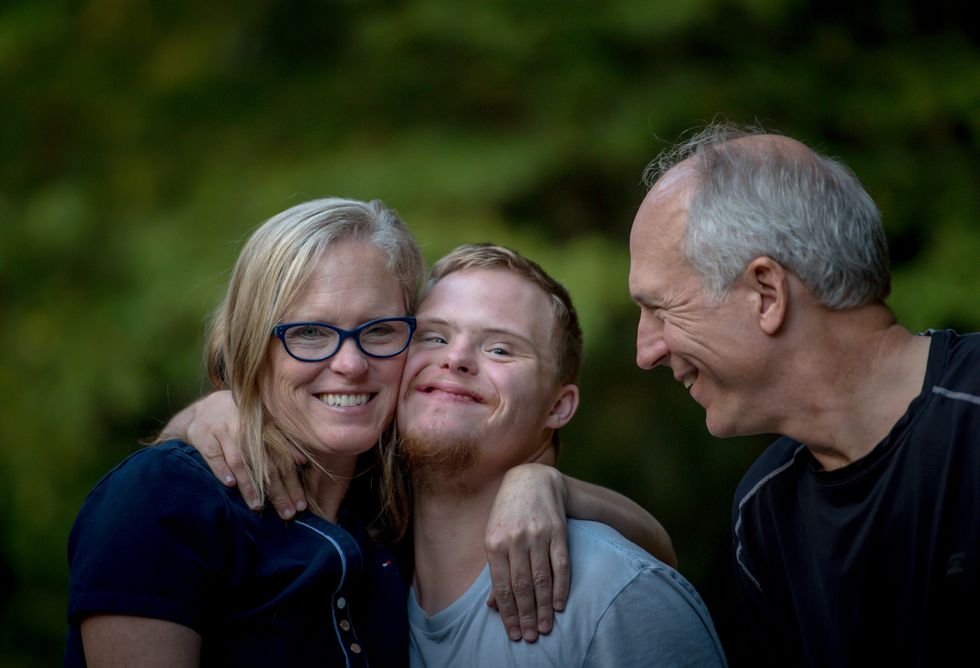Soon-to-be parents – within the first trimester, you will learn about potential health risks your child is facing.
Even with early screening advancements, some disorders can take up to 7 years to present themselves. Sufficed to say, this can be a stressful period because you desperately want your child to live a fulfilling life without physical/mental limitations. As your child's health is being revealed, it's important to prepare for the future by learning as much as possible.
Special needs aren't as limiting as they once were, and the future continues to show improvement thanks to medical and technological advancements.
So take a breath, don't blame yourself or feel guilty, and start taking the next steps towards brighter future for you and your child. You will love them unconditionally and preparing for their needs is the best action you can take.
Current Special Needs Statistics
If you are worried your infant may have special needs, get to know the recent statistics. Or maybe you already know the diagnosis and are wondering, why us? In that case, get to know the recent statistics and find out you're far from alone. Whether you're worried and feel alone, understanding the current special needs landscape will help.
ADHD
- 6.4 million American children ages 4-17 have been diagnosed with ADHD
- Around 7 years old is typically when ADHD is diagnosed
Cystic Fibrosis
- 75% of people with CF are diagnosed by age 2
- If two CF carriers have a child, there is a 25% chance their child will have CF
Autism
- 1 in 59 children have been diagnosed with autism
- Autism can be reliably diagnosed by age 2, but most children are diagnosed at age 4
Spina Bifida
- 1 in 700 births in Caucasian people
- Maternal folic acid deficiency and use of valproate in the 1st trimester are associated with spina bifida
Down Syndrome
- 6,000 babies are born annually in the U.S., or 1 in 700 babies.
- The chance of Down syndrome increases with the mother's age.
Where can I find help?
We live in an age of communication and connectivity. Thanks to the internet, you can access knowledge, support, help, and community from virtually anywhere and anytime. Finding a local organization in which to participate is beneficial because it promotes actual interactions, but if that is non-existent in your area or challenging for your schedule, then the internet is there.
The following are recognized for their assistance and availability, and may help you create a unique plan that fits your situation:
- National Down Syndrome Society
- Angelman Syndrome Foundation
- Parents Helping Parents
- Team of Advocates for Special Kids
- National Ability Center
Isolation isn't healthy regardless if special needs is present or not. Get involved with resources like these or others. They are dedicated to helping you, your child, your family, and promoting awareness among others as well.
What about their education?
When you learn that your infant has special needs, it may thrust you down the rabbit hole. You'll ask questions that have never crossed your mind regarding insurance, lifestyle changes, bills, where you live, and other areas changed by your new circumstances. We teach our kids based off of our own life experiences, but this is a situation where you don't have much to pull from. How can you teach them how to live when you didn't have the same needs.
Fortunately, public and private schools have been improving their provisions for students with special needs. Utilizing new technologies and strategies, special education teachers provide an enriching environment supported by years of research and experience that you aren't naturally imbued with. 6.5 million children, from 3 to 21, received special education in 2013 alone. Your child will go to school and have classmates like typical students, and you can rest easy knowing they are qualified.
Will they have a career?
Yes! Advancements in medical practices during earlier years help your child develop past previous limitations, and assistive technology is becoming easier to use. With the holistic array of support your child will have throughout their life, they will be able to take care of themselves physically, mentally, and financially. The following companies employ workers with special needs and offer considerations for any lifestyle necessities (i.e. mobility, personal space, etc.):












